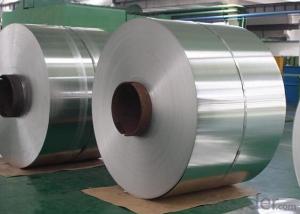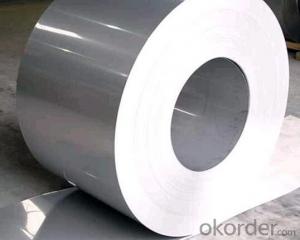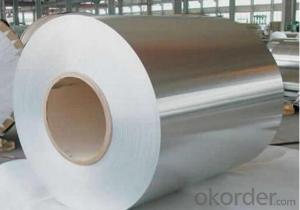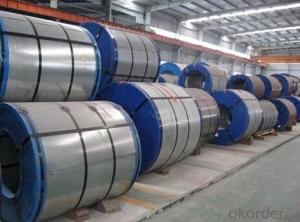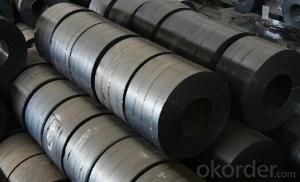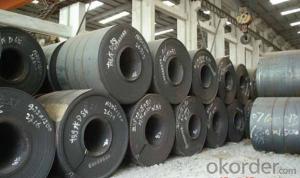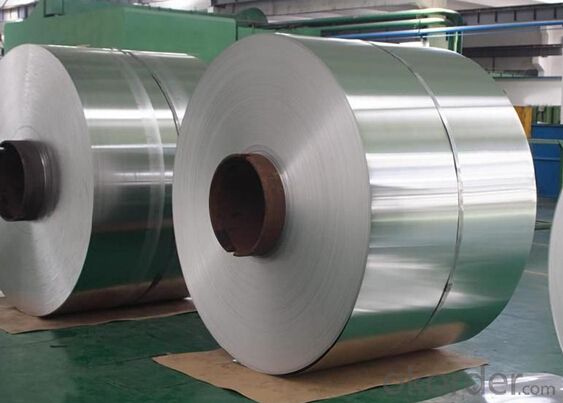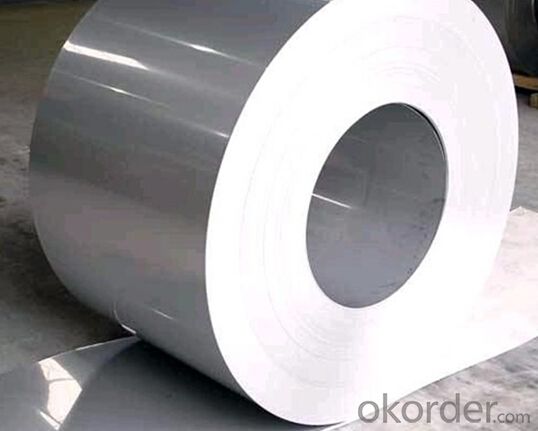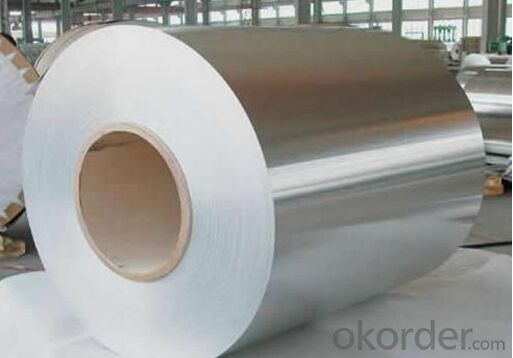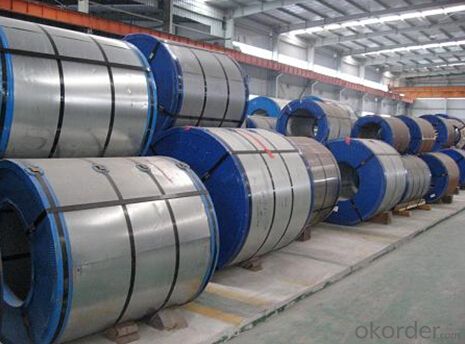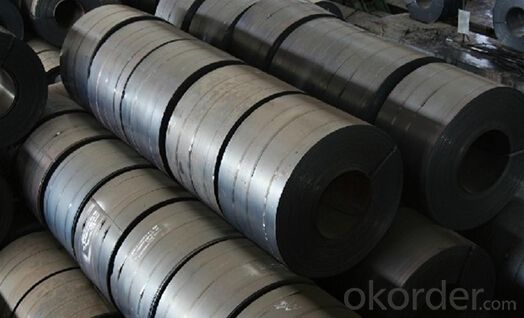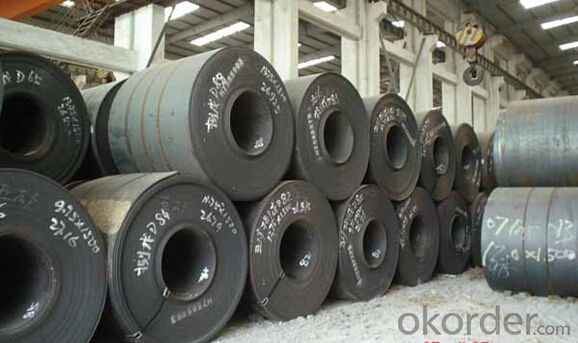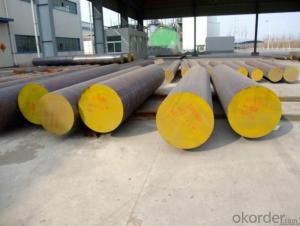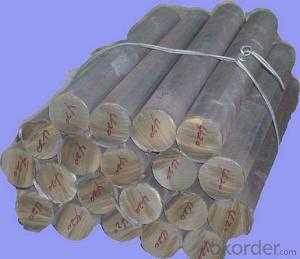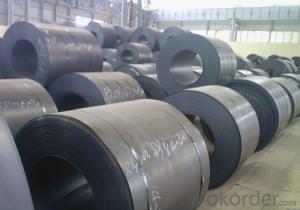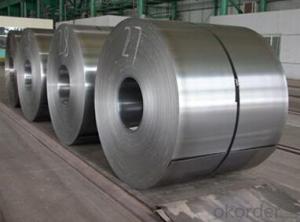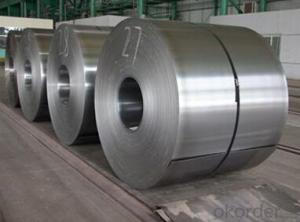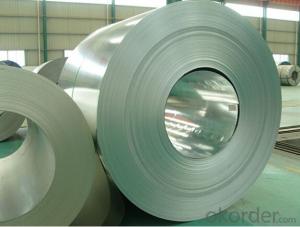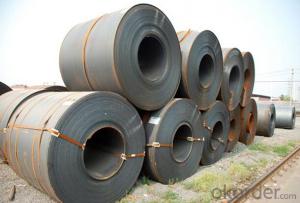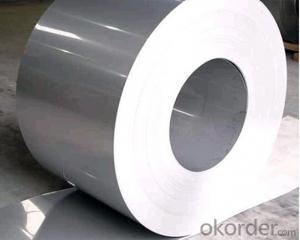Grade S250GD-S550GD Galvanized Steel Coil
- Loading Port:
- Tianjin
- Payment Terms:
- TT OR LC
- Min Order Qty:
- 3 m.t.
- Supply Capability:
- 10000 m.t./month
OKorder Service Pledge
OKorder Financial Service
You Might Also Like
Specification
Grade S250GD-S550GD Galvanized Steel Coil
Specification of Grade S250GD-S550GD Galvanized Steel Coil
1. Galvanized Steel Coil
(1) Width: 600-1570mm
(2) Thickness: 0.13-5.0mm
(3) Grade: JIS G3302-SGCC-SGC570, SGCH (full hard-G550), SGHC-SGH540
EN10346-DX51D+Z, DX53D+Z, S250GD-S550GD
ASTM A653-CS-B, SS255-SS550
(4) Zinc Coating: Z40g/m2~Z500g/m2 (both side total coating thickness)
2. Galvalume Steel Coil
(1) Width: 600~1500mm
(2) Thickness: 0.15~2.30mm
(3) Grade: JIS G3321-SGLCC, SGLC400-570, (G550)
EN10346-DX51D+AZ, DX53D+AZ, S250-S550
ASTM A792M CS-B, SS255-SS550
(4) AZ Coating: AZ50~AZ185g/m2
3. Prepainted Galvanized Steel Coil (PPGI)
(1) Width: 600~1250mm
(2) Thickness: 0.19~1.50mm
(3) Grade: JIS G3312-CGCC, CGC340-570, (G550)
ASTM A755M CS-B, SS255-SS550
(4) Zinc Coating: Z40g/m2~Z500g/m2 (both side total coating thickness)
4. Prepainted Galvanized Steel Coil (PPGL)
(1) Width: 600~1250mm
(2) Thickness: 0.20~1.50mm
(3) Grade: JIS G3322-CGLCC, CGLC340-570, (G550)
ASTM A755M CS-B, SS255-SS550
(4) AZ Coating: AZ50~AZ185g/m2 (both side total coating thickness)
5. Cold Rolled Steel Coil (Soft) (for further information, pls click the product name)
(1) Width: 600~1570mm
(2) Thickness: 0.13~2.50mm
(3) Grade: JIS G3141-SPCC-SD, SPCD-SD, SPEC-SD
JIS G3135-SPFC 340/390/440
EN10130-DC01, DC03, DC04
SAE1006, SAE1008
ASTM A424-TypeⅡ
6. Cold Rolled Steel Coil (Full Hard) (for further information, pls click the product name)
(1) Width: 600~1570mm
(2) Thickness: 0.13~2.50mm
(3) Grade: JIS G3141-SPCC-1B, SPCC-1D
7. Hot Rolled Steel Coil
(1) Width: 1000~1524mm
(2) Thickness: 1.20~16.5mm, other thickness can be negotiation
(3) Grade: JIS G3101-SS400, JIS G3132-SPHT1/2/3, ASTM A36, Q195, Q235 etc.
Company Introduction of the Grade S250GD-S550GD Galvanized Steel Coil
CNBM International Corporation is the most import and export platform of CNBM group(China National Building Material Group Corporation) ,which is a state-owned enterprise, ranked in 270th of Fortune Global 500 in 2015.
With its advantages, CNBM International are mainly concentrate on Cement, Glass, Iron and Steel, Ceramics industries and devotes herself for supplying high quality series of refractories as well as technical consultancies and logistics solution.
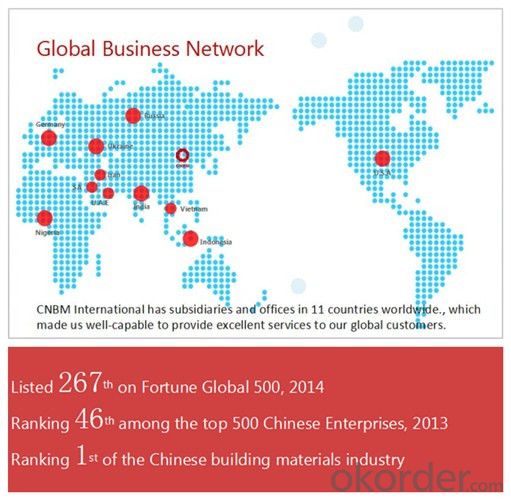
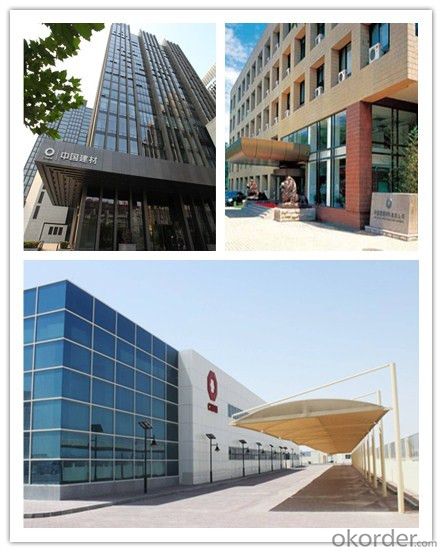
Packaging & Delivery of the Grade S250GD-S550GD Galvanized Steel Coil
Packaging Detail | Sea worthy packing /as per customer's packing instruction |
Delivery Detail | 15 ~ 40 days after receiving the deposit |
Products Show:
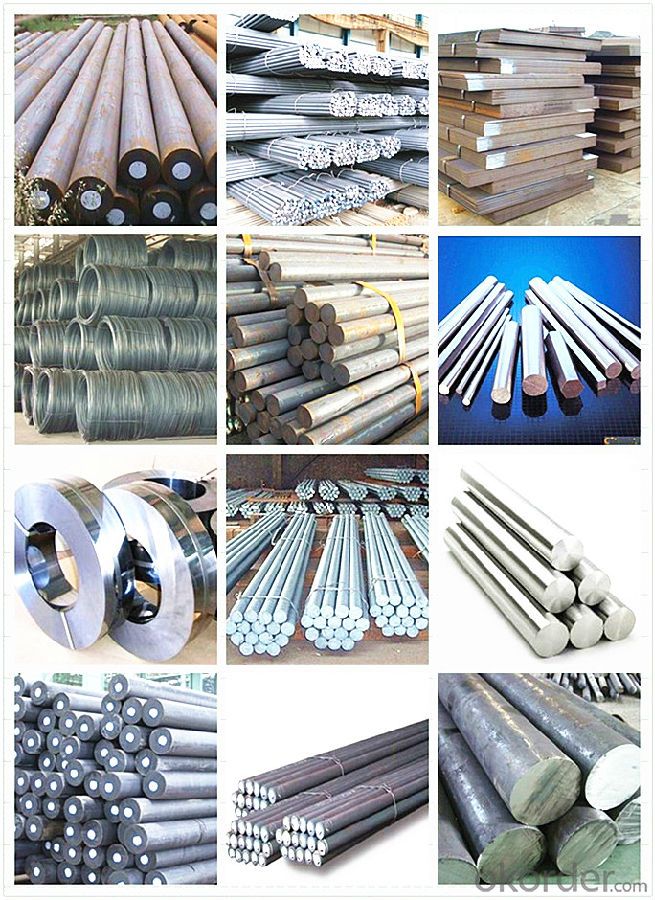
FAQ:
Are you a trading company or manufacturer? | Manufacturer |
What’s the MOQ? | 3 metric ton |
What’s your delivery time? | 15-35 days after downpayment received |
Do you Accept OEM service? | Yes |
what’s your delivery terms? | FOB/CFR/CIF |
What's the Payment Terms? | 30% as deposit,70% before shipment by T/T |
Western Union acceptable for small amount. | |
L/C acceptable for large amount. | |
Scrow ,Paybal,Alipay are also ok | |
Why choose us? | Chose happens because of quality, then price, We can give you both. Additionally, we can also offer professional products inquiry, products knowledge train (for agents), smooth goods delivery, excellent customer solution proposals. |
What's your available port of Shipment? | Main Port, China |
What’s your featured services? | Our service formula: good quality+ good price+ good service=customer's trust
|
Where are your Market? | Covering more than 160 countries in the world |
- Q: What are the different methods of improving the creep resistance of special steel?
- To enhance the creep resistance of special steel, various methods can be employed. These methods aim to improve its ability to withstand high temperatures and constant stress over a long period of time. Commonly used techniques include: 1. Alloying: By adding specific elements like chromium, molybdenum, tungsten, and vanadium, the creep resistance of special steel can be significantly enhanced. These alloying elements form strong carbides or intermetallic compounds that impede dislocation movement, thereby increasing the material's strength and resistance to creep. 2. Heat treatment: Precise heat treatment techniques, such as quenching and tempering, annealing, and normalizing, can be employed to improve the creep resistance of special steel. These processes alter the microstructure of the steel, resulting in the formation of fine-grained and homogeneous structures that offer better creep resistance. Heat treatment also helps in relieving residual stresses and enhancing the overall strength of the material. 3. Grain refinement: Special steel can undergo processes that refine its grain structure, thereby improving its creep resistance. Techniques like controlled rolling, recrystallization, and severe plastic deformation can reduce the grain size and make it more uniform. This refined microstructure hinders dislocation movement and enhances the material's resistance to creep deformation. 4. Precipitation hardening: Special steel can be subjected to precipitation hardening methods, where it is heated and then rapidly cooled to induce the formation of fine precipitates. These precipitates act as barriers to dislocation movement, thereby improving the material's strength and creep resistance. 5. Surface modification: Surface modification techniques, such as shot peening, laser surface melting, and surface coatings, can be applied to increase the creep resistance of special steel. These methods improve the surface integrity, reduce roughness, and introduce compressive residual stresses, all of which contribute to enhanced creep resistance. It is important to consider the specific requirements of the application and the type of special steel being used when selecting and combining these methods. The goal is to optimize the material's microstructure, chemical composition, and surface characteristics in order to achieve the desired creep resistance and ensure long-term performance at elevated temperatures.
- Q: How does special steel contribute to the power generation machinery industry?
- Special steel plays a crucial role in the power generation machinery industry as it provides the necessary strength, durability, and resistance to extreme temperatures and corrosion. The use of special steel in components such as turbine blades, generator shafts, and boiler tubes enhances the overall efficiency and reliability of power generation machinery. Additionally, special steel's unique properties enable the production of more compact and lightweight equipment, leading to improved performance and reduced energy consumption.
- Q: How does special steel contribute to the mining equipment industry?
- Special steel plays a significant role in the mining equipment industry by providing superior strength, durability, and resistance to harsh operating conditions. It is used in the manufacturing of various mining equipment components such as drill bits, crusher parts, conveyor belts, and buckets, enhancing their performance and longevity. Additionally, special steel enables the development of more advanced and efficient mining machinery, leading to increased productivity and safety in the mining sector.
- Q: What are the cost implications of using special steel?
- Using special steel can have significant cost implications. Special steels are often more expensive compared to standard steels due to their specific properties and manufacturing processes. The cost of special steel can vary depending on factors such as the alloy composition, production techniques, and market demand. Additionally, using special steel may require specialized tools, equipment, and skilled labor, which can further increase the overall cost. However, it is important to consider the long-term benefits and potential cost savings that can be achieved by using special steel, such as improved durability, corrosion resistance, and enhanced performance in specific applications.
- Q: How does special steel contribute to the oil and gas industry?
- Special steel plays a crucial role in the oil and gas industry by providing strength, corrosion resistance, and durability to equipment and infrastructure. It is used in the construction of pipelines, drill pipes, wellheads, valves, and various other components. The unique properties of special steel enable it to withstand harsh operating conditions, high pressures, and corrosive environments, ensuring the reliability and safety of oil and gas operations.
- Q: What are the requirements for special steel used in high-pressure applications?
- To ensure its durability and reliability under extreme conditions, special steel utilized in high-pressure applications must fulfill specific criteria. Some of the crucial requirements for this type of steel include the following: 1. Exceptional strength: The steel must possess extraordinary strength to withstand the intense forces and pressures it will encounter. This allows it to resist deformation and maintain its structural integrity. 2. Remarkable corrosion resistance: The steel needs to exhibit a high resistance to corrosion since it will frequently come into contact with aggressive fluids or gases in high-pressure environments. This prevents deterioration over time and helps sustain its performance and longevity. 3. Good weldability: The special steel employed in high-pressure applications should have good weldability in order to facilitate easy and efficient joining of different components. This ensures the overall integrity and reliability of the system. 4. Endurance against high temperatures: The steel must be capable of withstanding elevated temperatures without compromising its mechanical properties. This is particularly critical in applications where high-pressure fluids or gases are heated or where the steel is exposed to extreme heat sources. 5. Resistance to fatigue: The special steel should display a high resistance to fatigue failure, as it will often undergo cyclic loading and pressure fluctuations. This enables the steel to endure repeated stress and pressure cycles without developing cracks or failures. 6. Precise dimensional tolerance: The steel should possess precise dimensional tolerance to ensure proper fit and functionality within the high-pressure system. This helps minimize leakage or any potential weak points in the system. 7. Compliance with industry standards: The special steel used in high-pressure applications must meet relevant industry standards and specifications, such as those established by organizations like the American Society of Mechanical Engineers (ASME) or the American Petroleum Institute (API). This guarantees that the steel meets the required quality and performance standards. In summary, special steel for high-pressure applications must possess a combination of extraordinary strength, remarkable corrosion resistance, good weldability, endurance against high temperatures, resistance to fatigue, precise dimensional tolerance, and compliance with industry standards to ensure its suitability and reliability in demanding environments.
- Q: Can special steel be used in the plumbing industry?
- Yes, special steel can be used in the plumbing industry. Special steel, such as stainless steel or alloy steel, offers excellent corrosion resistance and durability, making it suitable for various plumbing applications. It is commonly used in pipes, fittings, valves, and other components that require resistance to chemicals, high pressure, and extreme temperatures.
- Q: What are the common challenges in heat treatment of special steel?
- Some common challenges in the heat treatment of special steel include achieving uniform heating and cooling rates, managing distortion and warping, controlling grain growth, and avoiding the formation of undesirable phases or microstructures. Additionally, maintaining tight temperature tolerances, ensuring proper heat transfer within the material, and minimizing the risk of cracking or other forms of damage are also key challenges in the heat treatment process.
- Q: What are the requirements for special steel used in mining equipment?
- Special steel used in mining equipment needs to possess certain key requirements. Firstly, it must have high strength and toughness to withstand the harsh and demanding conditions present in mining operations. It should also exhibit excellent wear resistance to endure the abrasive nature of rocks and minerals. Additionally, corrosion resistance is crucial to prevent the steel from deteriorating due to exposure to water, chemicals, and other corrosive substances commonly found in mining environments. Finally, the special steel used in mining equipment should be capable of maintaining its mechanical properties at elevated temperatures, as mining processes often involve high heat generation. Overall, the requirements for special steel in mining equipment revolve around durability, wear resistance, corrosion resistance, and heat resistance.
- Q: How does tungsten contribute to the properties of special steel?
- Tungsten is a critical element that contributes significantly to the properties of special steel. One of the major benefits of tungsten in steel is its ability to enhance strength and hardness. It forms a solid solution with iron, resulting in a fine-grained microstructure that increases the overall toughness and wear resistance of the steel. Additionally, tungsten helps to improve the high-temperature strength of special steel. It has a high melting point and maintains its strength even at elevated temperatures, making it ideal for applications that require resistance to heat and thermal stress. This characteristic allows special steel with tungsten to be used in environments with extreme temperatures, such as in gas turbines, rocket nozzles, and cutting tools. Tungsten also plays a crucial role in improving the corrosion resistance of special steel. It forms stable carbides that protect against corrosion and erosion, making the steel more durable and long-lasting. This is particularly valuable in industries where the steel is exposed to corrosive environments, such as chemical processing, marine applications, and oil and gas exploration. Furthermore, tungsten contributes to the machinability of special steel. It helps in reducing the built-up edge during cutting operations, resulting in improved surface finish and longer tool life. This characteristic is highly advantageous in industries that require precision machining, such as automotive, aerospace, and tool manufacturing. In summary, tungsten is a vital element in special steel as it enhances strength, hardness, high-temperature performance, corrosion resistance, and machinability. Its unique properties make it an indispensable component in the production of high-quality steel used in various industries.
Send your message to us
Grade S250GD-S550GD Galvanized Steel Coil
- Loading Port:
- Tianjin
- Payment Terms:
- TT OR LC
- Min Order Qty:
- 3 m.t.
- Supply Capability:
- 10000 m.t./month
OKorder Service Pledge
OKorder Financial Service
Similar products
Hot products
Hot Searches
Related keywords
